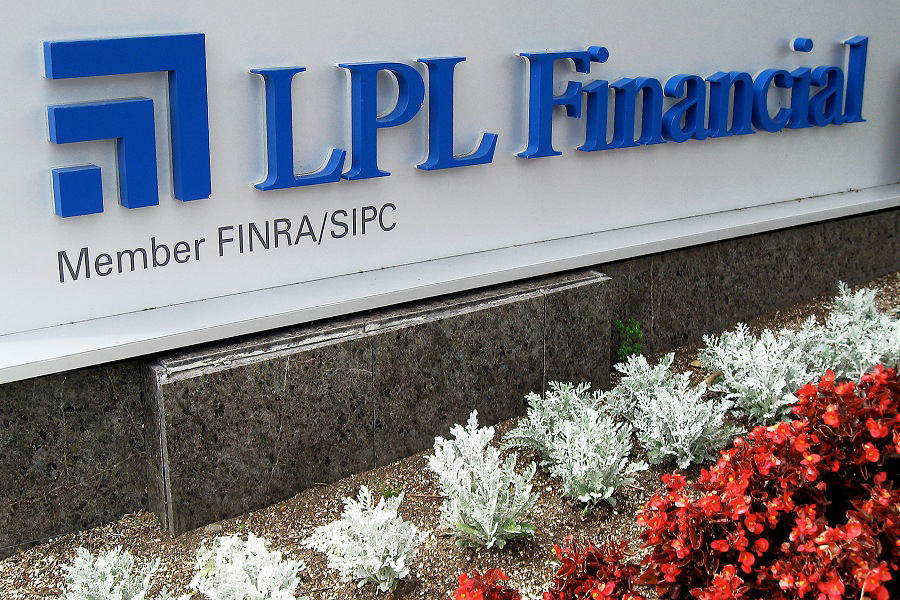

Long a recruiting powerhouse for advisers who work as independent contractors, LPL Financial is putting its money where its mouth is when it comes to its new effort to hire employee financial advisers.
LPL's recruiting deal for employee advisers has two parts. The first is an initial signing bonus of up to 150% of an adviser's prior-year total revenue when the adviser or team walks in the door; the second is based on the adviser's assets.
Such bonuses are paid out over time, and the second part of LPL's bonus comes in the form of a multiyear forgivable note, according to industry sources who spoke anonymously.
The employee financial advisers that LPL is targeting, including those from the four wirehouses, have to be highly profitable and have a large amount of client assets in fee-based accounts to qualify.
Take an adviser who's an employee with $100 million in client assets, most charging fees. Such an adviser typically generates in the neighborhood of $1 million in annual revenue.
That hypothetical adviser could see an upfront bonus of 150% of their annual revenue, which means the adviser could see a signing bonus of $1.5 million, according to industry sources. And that same hypothetical adviser over several years would receive the second part of that bonus, up to 100 basis points on assets, which would translate into $1 million.
That's $2.5 million in total, sources said.
An LPL spokesperson wouldn't comment on the specifics of the recruiting deal. Instead, the spokesperson wrote in an email: "We present offerings in the marketplace that are unique to individual advisers, and we are consistently quite competitive in those offerings."
The LPL signing bonus for an employee is by no means the biggest in the marketplace right now for wirehouse advisers. For example, over the past few years Rockefeller Capital Management has offered a signing bonus of three times an adviser's annual revenue — double the amount LPL has on the table.
Recruiting advisers who are employees and those who are independent contractors are two distinct ways of attracting advisers to a new firm. Broker-dealers pay independent contractor advisers a much greater percentage of each dollar of revenue they generate, typically 80%. But those advisers have higher business expenses because they pay their own costs, with real estate typically the biggest.
Advisers who are employees, like those at Merrill Lynch and the other wirehouses, get about 40% of each dollar they generate in revenue but don't pay for overhead. They also typically generate $1 million or more in annual revenue, or roughly two to three times what many independent contractors produce.
In 2018, LPL Financial tapped a wirehouse veteran, Rich Steinmeier, who helped launch the wildly successful Merrill Edge, to take over as head of recruiting. And last year it launched its Linsco-branded platform for wirehouse advisers, promising to increase those advisers’ payouts, putting more money in their pockets given that the payout is potentially higher than that of a wirehouse.

Relationships are key to our business but advisors are often slow to engage in specific activities designed to foster them.

Whichever path you go down, act now while you're still in control.

Pro-bitcoin professionals, however, say the cryptocurrency has ushered in change.

“LPL has evolved significantly over the last decade and still wants to scale up,” says one industry executive.

Survey findings from the Nationwide Retirement Institute offers pearls of planning wisdom from 60- to 65-year-olds, as well as insights into concerns.
Streamline your outreach with Aidentified's AI-driven solutions
This season’s market volatility: Positioning for rate relief, income growth and the AI rebound
